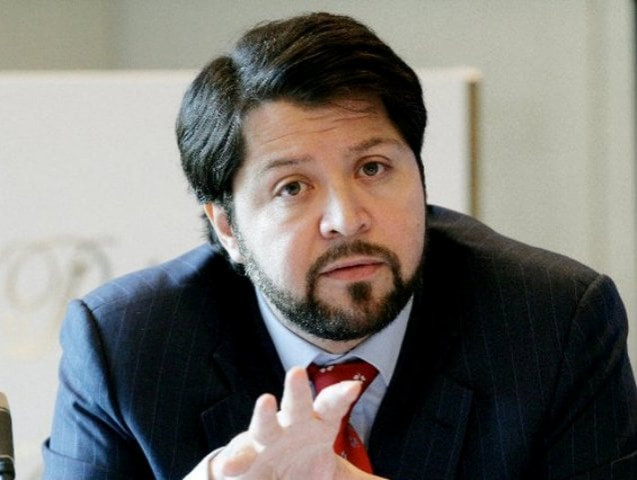Neighbourhood watch: Optimism surrounds warring sides’ first direct contact
Apprehensions linger on future of peace talks vis-à-vis role of Taliban’s Qatar office

Afghan Deputy Foreign Minister Khalil Hekmat Karzai, who led the high-level delegation from Kabul in the four-hour-long talks on July 7, is confident of converting the ‘Murree peace process’ into a formal dialogue.
Afghan Deputy Foreign Minister Khalil Hekmat Karzai, who led the high-level delegation from Kabul in the four-hour-long talks on July 7, is confident of converting the ‘Murree peace process’ into a formal dialogue.
The meeting was important as it was the first official face-to-face contact between the warring sides in nearly 14 years. Both sides were represented by senior leaders who agreed to hold another round after Ramazan in which they will possibly discuss a ceasefire.
Who’s who of Taliban
The Taliban leadership had nominated influential leaders, including two members of the powerful leadership council, Mullah Abbas Akhund and Mullah Abdul Latif Mansoor, for the talks. Akhund was the health minister during the Taliban regime while Mansoor served as the agriculture minister and held several political and military positions in the Taliban hierarchy.
Other delegates included former Kandahar governor Mullah Abdul Razaq Akhund, ex-deputy foreign minister Mullah Jalail, former commerce minister Mullah Esa Akhund and Haji Ibrahim, a senior leader of the Haqqani Network. Ibrahim is the brother of the group’s chief Jalaluddin Haqqani.
The composition of the Taliban delegation indicates the group had assigned senior leaders to plead their case with the government’s team which itself had the representation of the two-headed unity government and the High Peace Council.
Members of the Afghan government delegation also recognised this fact when they spoke at a press conference in Kabul on Thursday.
“The people we met in Pakistan were representing Akhtar Mansoor (the Taliban acting chief) and their central shura (council),” Hekmat Karzai told the media in Kabul upon his return on Thursday.
At the same presser, Muhammad Nateqi, a member of the Afghan team who represented Chief Executive Dr Abdullah Abdullah, said, “What made this meeting with the Taliban special was that senior leaders of the Taliban and Haqqani Network were in attendance.”
Pakistan Foreign Ministry spokesman Qazi Khalilullah also said, “Participants were duly mandated by their respective leadership.”
Conflict with Qatar office?
Kabul and Islamabad described the talks as a “breakthrough” but both are likely to face some serious challenges to keep the fragile peace process on track.
One of the more difficult tasks would be involving Taliban’s political office in Qatar. A spokesman for the office in Doha, Dr Muhammad Naeem, has told pro-Taliban website nunn.asia that no Qatar-based member had taken part in the Murree talks.
A day after the much-publicised meeting ended, the Taliban leadership reiterated only the Qatar office has been authorised to pursue political process. This was seen as a message to all the facilitators of the peace process.
“From now onwards, all of the Islamic Emirate’s foreign and internal political affairs are entrusted to the Islamic Emirate’s Political Office as their sole responsibility,” a Taliban statement from the powerful leadership council said. The three-paragraph statement did not directly mention talks in Pakistan but Taliban officials privately told The Express Tribune that it was issued in the context of the Murree meeting.
A Taliban official said some leaders, who were not part of the Qatar process, were granted one-time permission to hold direct talks with the Kabul administration but they “cannot hold such meetings again”. He said the Qatar office would decide whether to hold more talks and who would participate.
“Members of the Qatar office have the authority to pursue political process and no one [else] has this mandate. The leadership of the Islamic Emirate could nominate anyone outside from the Qatar office to sit with anyone,” a source privy to the affairs of the office told The Express Tribune.
In a series of discussions, Taliban leaders insist supreme leader Mullah Muhammad Omar had appointed Sayed Tayyeb Agha as head of the Qatar office with a mandate to hold political talks with countries and Afghanistan.
A Taliban leader told The Express Tribune that Agha told Mansoor on several occasions that latter could not challenge his position; that he (Mansoor) was responsible only for military affairs.
All stakeholders in the Pakistan-brokered process will have to keep all these sensitivities in mind as any misunderstanding can derail the process in its nascent stage and elude the much-needed peace from the conflict-ridden country.
Published in The Express Tribune, July 11th, 2015.



















COMMENTS
Comments are moderated and generally will be posted if they are on-topic and not abusive.
For more information, please see our Comments FAQ